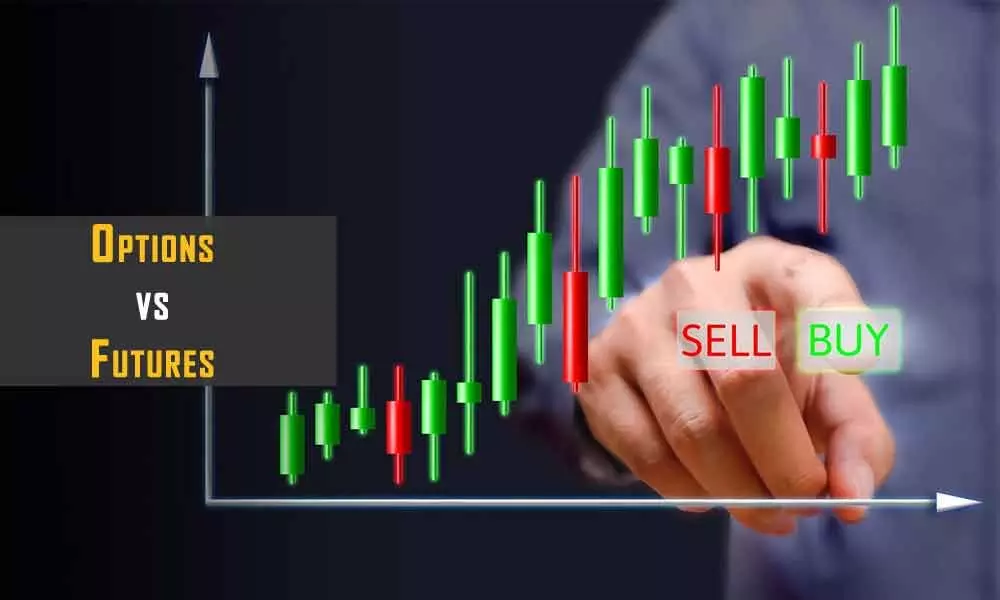Options vs Futures: Exploring derivatives trading
 Options vs Futures: Exploring derivatives trading
Options vs Futures: Exploring derivatives tradingA derivative is a contract that derives its value from the performance of an underlying entity, which could be an asset or index. Futures and Options (F&O) are derivatives
A derivative is a contract that derives its value from the performance of an underlying entity, which could be an asset or index. Futures and Options (F&O) are derivatives.
Initially it was started for hedging purpose, but later it was used for speculation and trading. Hedging is like protection. For instance, you have invested in a stock in equities and you want to protect your investment just in case the price goes down.
To minimize loss in case of fall in price one goes short in options with Put option to protect the capital. But now futures and options are very popular among traders.
Futures are very risky. People lose their entire capital in one or two trades by trading in futures if their speculation goes wrong. Traders make huge losses if they don't have a proper stop loss. Brokers are giving huge margins these days.
On an average Rs50,000 are required for trading in Bank Nifty futures. Sometimes brokers are giving 5 to 10 times margin, which is tempting, but very risky if the trade doesn't go in your favour. Don't use margin or leverage to be on the safer side.
Options are of two types Call and Put. In Options, you can buy or sell. Options are a kind of insurance.
Options sellers are insurance companies and option buyers are insurance clients. Option sellers have an edge over option buying. Even though you pay for health insurance every year you claim only if you are sick.
Most of the time option sellers make more money. Let us understand it better with an example.
Suppose Nifty is trading at 10,000 and it is a Thursday, which is a weekly expiry day. Let us assume three scenarios.
In futures, a person is buying Nifty lot trading at 10,000 and it goes up to 10,050. So, he earns 3,750 (50*75) as lot size is 75.
Call option buyer expects it to go up to 10,100.Suppose you have bought a 10,100 out of the money Call option by paying Rs100. So, the amount paid is Rs7,500. Option buyer trader gets benefit only if price goes up. His analysis should be right.
Third scenario is an Option seller. They sell out of the money (OTM) Put option. Option seller sells out of the money Put option, but an option seller gets money even if market goes sideways.
You don't need big money in options. Loss is restricted to the extent of premium. One advantage in futures is if the trade is not in your favour, you can rollover.
Option selling disadvantage is unlimited loss. Option sellers make money because of time decay and theta. Theta is enemy of option buyers and friend of option sellers.
So, final conclusion is pptions are relatively safer to trade, but in-depth knowledge and understanding of Open Interest (OI) chart is imperative.
(The author is a homemaker who dabbles in stock market investments in free time)









